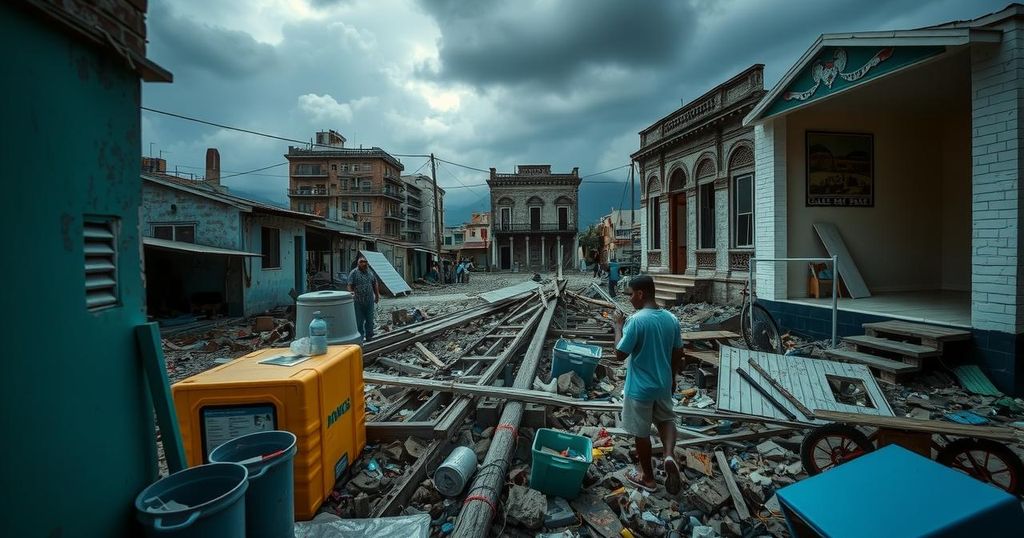A powerful 6.8 magnitude earthquake has struck eastern Cuba, complicating recovery efforts from recent hurricanes and infrastructure challenges. President Miguel Diaz-Canel reported damages including landslides and destroyed homes, but no casualties have been confirmed. The quake has heightened concerns over the island’s outdated infrastructure and economic struggles caused by previous storms.
A significant earthquake measuring 6.8 on the Richter scale struck eastern Cuba, compounding the difficulties faced by the nation, which is still recovering from recent storms. According to the United States Geological Survey (USGS), the epicenter of the quake was located approximately 40 kilometers south of Bartolome Maso. Fortunately, there have been no reported fatalities or injuries following this seismic event. However, President Miguel Diaz-Canel reported substantial damage, including landslides, destruction of homes, and downed power lines in the regions of Santiago de Cuba and Granma. Many residents have described this earthquake as one of the most intense they have experienced. Griselda Fernandez, a Santiago inhabitant, emphasized the quake’s uniqueness, stating, “We’ve felt earthquakes in the past, but nothing like this.” The tremor caused panic among citizens, with reports of individuals taking refuge in doorways as buildings swayed violently. Additionally, Yolanda Tabio, a 76-year-old resident, vividly recounted, “You had to see how everything was moving, the walls, everything.” The aging infrastructure in the region rendered many structures particularly vulnerable to damage from the quake. State-run media outlets showcased photographs illustrating the devastation, including collapsed roofs and significant structural impairments in homes and public infrastructure. The USGS confirmed that the tremor was also felt in neighboring countries, including Jamaica. This earthquake is a part of a troubling trend of natural disasters affecting Cuba, which already suffers from systemic infrastructure issues and economic instability. Just in October, Hurricane Oscar resulted in substantial rainfall and widespread power failures, claiming at least six lives, while the recent Hurricane Rafael incapacitated electricity for approximately ten million residents, uprooted trees, and devastated properties. The series of events adds to the already pressing humanitarian and economic challenges facing the Cuban population.
Cuba is grappling with the repercussions of multiple natural disasters amidst ongoing economic challenges. Recent events, including Hurricanes Rafael and Oscar, resulted in severe infrastructural damage and loss of life, highlighting the island’s vulnerability to severe weather events. The recent earthquake further exacerbates these issues, showcasing the fragility of the existing infrastructure and the urgent need for comprehensive recovery efforts. The country’s struggle has been compounded by a persistent energy crisis and economic difficulties that leave many citizens in precarious circumstances.
In summary, the recent 6.8 magnitude earthquake has intensified the struggles of Cuba, which is already reeling from the effects of recent hurricanes and systemic economic crisis. The damage reported particularly impacts the eastern regions, where aged structures may not withstand such seismic activities. As recovery and assessment efforts begin, the focus remains on preserving life while addressing extensive infrastructural losses.
Original Source: www.aljazeera.com






